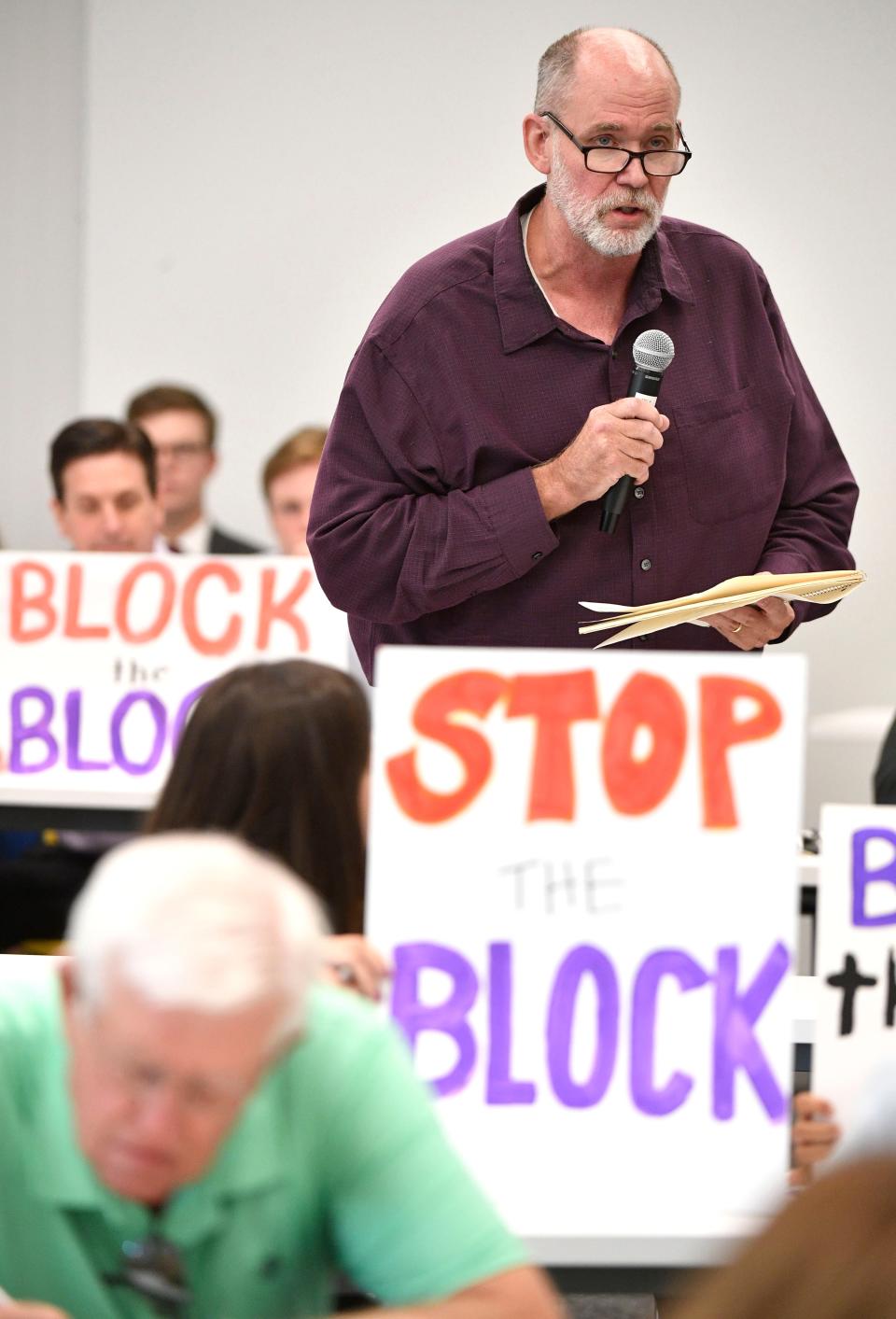Federal officials raise questions, propose significant changes to TennCare block grant program
Federal officials are proposing changes to the state's TennCare block grant program in likely attempt to force Tennessee to alter its approach to providing Medicaid services.
The Center for Medicare and Medicaid Services, which oversees TennCare's funding, wants to change the block grant program so that benefits that existed as of last year can't change without additional public comment and approval from federal officials.
They are proposing a new way to return some of the savings generated by the TennCare program that requires state officials to work with the Center for Medicare and Medicaid Services officials instead of being able to make independent decisions.
Medicaid officials also want the state to rescind the changes it made to what pharmaceutical drugs TennCare covers.

The proposals, laid out in a letter sent to TennCare's Director Stephen Smith on June 30, would likely put more power back in the hands of federal officials.
Related: Tennessee's Medicaid block grant: How the TennCare plan is supposed to work
Previous coverage: Tennessee unveils TennCare block grant proposal, pushes savings split with federal government
Michele Johnson, the executive director of the Tennessee Justice Center, long a critic of the block grant proposal, said letter was "good news for Tennesseans" and will likely force the state to move away from the block grant model.
"The nation’s leading medical experts and the major patient advocacy groups, including the American Cancer Society, American Heart Association and many others, opposed the waiver," Johnson said. "Not a single other state in the country, Republican or Democrat, sought such a deal because they realized it would be bad for their people."
Tennessee is the first and only state-approved to transform its Medicaid program through the block grant idea.
The Trump administration approved the state's TennCare block grant proposal during the final days of former President Donald Trump's tenure, which put its long-term viability in doubt once the Biden administration took over.
In a statement, TennCare spokesperson Amy Lawrence said the department was encouraged by "the Center for Medicare and Medicaid Services' continued support for the major concepts and priorities" of the TennCare block grant program.
"Gov. Lee and the General Assembly have made substantial investments in the TennCare program, including reducing program waiting lists for home and community-based services, enhancing maternal health benefits, and adding comprehensive adult dental services for the first time in Tennessee's history," Lawrence said. "These positive changes are a direct reflection of the confidence we have in our waiver and our ability to continue our record of success."
Officials have until Aug. 30 to respond with the requested proposals by the Center for Medicare and Medicaid Services.
Tennessee’s two Democratic congressman, U.S. Reps. Jim Cooper of Nashville and Steve Cohen of Memphis, also weighed in, praising the Biden administration’s decision.
Cooper said Tennessee “needs to go back to the drawing board” and that the plan “should never have been approved in the first place.”
Cohen said the decision was a win for “Tennessee and for all the Tennesseans who stood up against this plan.”
CMS letter to TennCare on June 30 by USA TODAY Network on Scribd
What is TennCare's block grant?
The block grant program significantly changed how Tennessee's Medicaid program, called TennCare, is both funded and managed. TennCare provides health insurance to pregnant mothers, low-income families, and many people with disabilities. It currently covers about one-fifth of all Tennessee residents.
Under the current TennCare system, the federal government pays Tennessee for about two-thirds of the cost of TennCare. This money is not capped, so as TennCare costs increase or decrease, the federal funding adjusts to match.
The block grant caps funding for TennCare, with exceptions, and gives state officials more authority over how to spend that money. If money is saved as part of the state's block grant program, the state keeps half to reinvest in government programs but not necessarily in TennCare.
The block grant concept is a Republican-backed alternative to expanding Medicaid, which was allowed under the Affordable Care Act, better known as Obamacare.

A Medicaid expansion raises the income requirement and, therefore, the number of people allowed to receive government-funded coverage.
Tennessee is one of the few states that declined Medicaid expansion, turning down billions in federal funding in the process and likely preventing at least 300,000 from accessing insurance who don't currently have it.
Conservative lawmakers who control the General Assembly have rejected attempts to expand TennCare under the Affordable Care Act in the past and instead passed a law requiring Lee's administration to apply for a TennCare block grant.
When the governor unveiled his proposal in 2019, it was not well received during public comment. Hearings held across the state were almost entirely negative. The state collected about 1,800 written comments on the block grant plan, but only 11 were in support.
The public comment period on the block grant program was reopened late last year, after a lawsuit from the Tennessee Justice Center.
Johnson said the CMS letter likely in response to those public comments.
"Now we are just waiting for what the program will look like next," she said.
Adam Friedman is The Tennessean’s state government and politics reporter. Reach him by email at afriedman@tennessean.com.
Want to read more stories like this? A subscription to one of our Tennessee publications gets you unlimited access to all the latest politics news, plus newsletters, a personalized mobile experience and the ability to tap into stories, photos and videos from throughout the USA TODAY Network's daily sites.
This article originally appeared on Nashville Tennessean: Federal officials are proposing changes to TennCare block grant program

